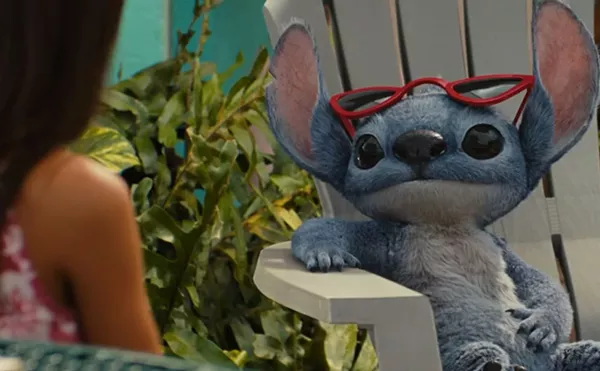
Audio By Carbonatix
[
{
"name": "GPT - Leaderboard - Inline - Content",
"component": "35519556",
"insertPoint": "5th",
"startingPoint": "3",
"requiredCountToDisplay": "3",
"maxInsertions": 100,
"adList": [
{
"adPreset": "LeaderboardInline"
}
]
}
]
The wages of war, particularly in Iraq, have been on the minds of many Hollywood filmmakers. Few have succeeded in capturing the public's contradictory emotions about the conflict and none has been successful at drawing a significant audience, though most didn't deserve to. But this year, nearly seven years after combat began, has brought us the crop's cream with Kathryn Bigelow's The Hurt Locker standing head and shoulders above the rest.
Oren Moverman's quiet, neo-realistic The Messenger is a similarly worthy addition. It's the story of decorated Iraq war hero Sgt. Will Montgomery (Ben Foster) who returns to the United States after rehabilitation and is assigned to the Army's Combat Notification Unit. Paired with seasoned pro Tony Stone (Woody Harrelson), Will must notify family next-of-kin that their enlisted loved ones have been killed in the line of duty. It's miserable, heartbreaking work that tests and inevitably bonds the temperamentally incompatible officers.
The explosions of grief that greet the two soldiers in the homes, apartments and yards of people who've lost their sons, daughters, husbands and fathers are both raw and unsettling. Moverman generates a remarkable amount of tension in the moments leading up to notification. Stoically enduring the tears, blows and curses of grieving parents and spouses, the men's encounters are as uncomfortably moving as they are emotionally harrowing.
The Messenger takes a documentary approach — using handheld cameras and unbroken takes — to create an austere, bare-bones style that recalls the similarly stark Wendy and Lucy.
Coupled with the use of mostly unknown actors, Will and Tony's encounters feel unnervingly authentic. So much so that the appearance of Steve Buscemi as an outraged dad yanks us out of the film's carefully wrought honesty.
Foster and Harrelson, on the other hand, are genuine and sympathetic. Foster's wounded yet heroic attempts to integrate with the world and reconcile his feelings of wartime guilt are both underplayed and believable. Harrelson, cast in a potentially caricatured role, creates a complex character defined by regret and damaged by his wretched job. Similarly excellent is Samantha Morton as the war widow Will begins to court. It's a testament to Morton and Foster's skill, and Moverman's keen eye and ear, that these scenes, which would normally reek of dramatic contrivance, ring true. Moverman captures their awkward, conflicted emotions in lingering shots that thwart expectation.
In fact, Moverman's humanist portrait of the enduring damage wrought by conflict is so patiently and sensitively constructed that it's jolting when The Messenger derails into artifice. In particular, a clichéd confrontation at the wedding of Will's ex smacks of Hollywood pretense — an embarrassing toast scene included.
Unlike most films that have tackled our recent wars in the Middle East, The Messenger isn't concerned with the politics, bluster or explosive drama of wartime action. Instead, Moverman and his cast want to underline that shame, suffering and the struggle to survive that follows our soldiers home. And that the unspoken casualties of war are the families and comrades who are left behind to pick up the pieces.
Opens Friday, Nov. 27, at the Maple Art Theatre, 4135 W. Maple Rd., Bloomfield Hills; 248-263-2111.
Jeff Meyers writes about film for Metro Times. Send comments to letters@metrotimes.com.





